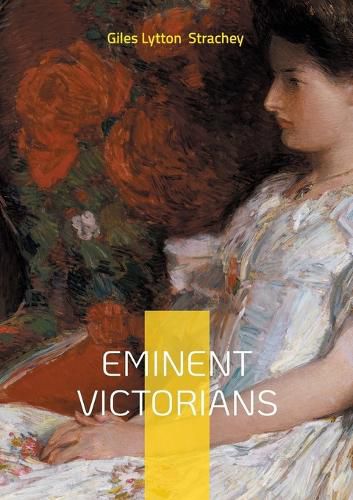Readings Newsletter
Become a Readings Member to make your shopping experience even easier.
Sign in or sign up for free!
You’re not far away from qualifying for FREE standard shipping within Australia
You’ve qualified for FREE standard shipping within Australia
The cart is loading…






This title is printed to order. This book may have been self-published. If so, we cannot guarantee the quality of the content. In the main most books will have gone through the editing process however some may not. We therefore suggest that you be aware of this before ordering this book. If in doubt check either the author or publisher’s details as we are unable to accept any returns unless they are faulty. Please contact us if you have any questions.
Eminent Victorians by Lytton Strachey shattered conventions when published in 1918, launching a new era of iconoclastic history with its irreverent portraits of four Victorian icons: Cardinal Manning, Florence Nightingale, Dr. Thomas Arnold, and General Gordon. Strachey, a leading light of the Bloomsbury Group, wielded satire and psychological insight to expose the contradictions beneath their saintly reputations, forever changing how biography was written. The work opens with Manning's ecclesiastical power struggles, revealing how ambition masked as piety shaped the Oxford Movement. Nightingale emerges as both heroic reformer and tyrannical perfectionist her wartime achievements juxtaposed with personal ruthlessness. Strachey's take on Arnold dismantles the myth of the benign educator, showing how his Rugby School reforms bred militaristic conformity. The final portrait of Gordon, the doomed imperialist in Khartoum, becomes a searing indictment of British hubris. More than just Victorian biographies, these essays dissect an entire age's moral pretensions. Strachey's razor-sharp prose mocking Arnold's "neat little sermons" or Gordon's messianic delusions pioneered literary modernism in historical writing. His archival rigor (digging through diaries and letters) pairs with wicked humor to humanize legends, making this essential reading for understanding how Edwardians rejected Victorian certainties after World War I's trauma.
$9.00 standard shipping within Australia
FREE standard shipping within Australia for orders over $100.00
Express & International shipping calculated at checkout
Stock availability can be subject to change without notice. We recommend calling the shop or contacting our online team to check availability of low stock items. Please see our Shopping Online page for more details.
This title is printed to order. This book may have been self-published. If so, we cannot guarantee the quality of the content. In the main most books will have gone through the editing process however some may not. We therefore suggest that you be aware of this before ordering this book. If in doubt check either the author or publisher’s details as we are unable to accept any returns unless they are faulty. Please contact us if you have any questions.
Eminent Victorians by Lytton Strachey shattered conventions when published in 1918, launching a new era of iconoclastic history with its irreverent portraits of four Victorian icons: Cardinal Manning, Florence Nightingale, Dr. Thomas Arnold, and General Gordon. Strachey, a leading light of the Bloomsbury Group, wielded satire and psychological insight to expose the contradictions beneath their saintly reputations, forever changing how biography was written. The work opens with Manning's ecclesiastical power struggles, revealing how ambition masked as piety shaped the Oxford Movement. Nightingale emerges as both heroic reformer and tyrannical perfectionist her wartime achievements juxtaposed with personal ruthlessness. Strachey's take on Arnold dismantles the myth of the benign educator, showing how his Rugby School reforms bred militaristic conformity. The final portrait of Gordon, the doomed imperialist in Khartoum, becomes a searing indictment of British hubris. More than just Victorian biographies, these essays dissect an entire age's moral pretensions. Strachey's razor-sharp prose mocking Arnold's "neat little sermons" or Gordon's messianic delusions pioneered literary modernism in historical writing. His archival rigor (digging through diaries and letters) pairs with wicked humor to humanize legends, making this essential reading for understanding how Edwardians rejected Victorian certainties after World War I's trauma.